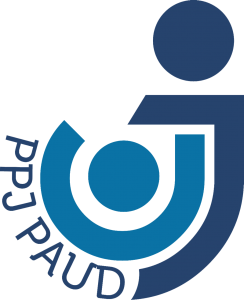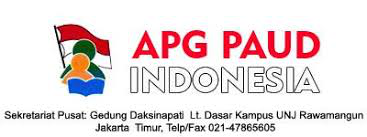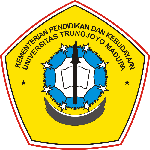DOI: https://doi.org/10.21107/pgpaudtrunojoyo
Jurnal PG-PAUD Trunojoyo: Jurnal Pendidikan dan Pembelajaran Anak Usia Dini is a quality open access peer reviewed research journal that is published by Department of Early Childhood Teacher Education, Faculty of Education, Universitas Trunojoyo Madura.
Jurnal PG-PAUD Trunojoyo: Jurnal Pendidikan dan Pembelajaran Anak Usia Dini publishes research articles, reports field studies, the best practices and policies of early childhood learning in national and international stage.The journal publishes peer-reviewed articles covering curriculum, child care programs, administration, staff development, family-school relationships, equity issues, multicultural units, health nutrition, facilities, special needs, employer-sponsored care, infant/toddler programs, child development, advocacy, and more. Articles analyze issues, trends, policies, and practices, as well as offering well-documented points-of-view and practical recommendations. It published twice in April and Oktober and has been accredited SINTA 3 by the Indonesian Ministry of Education and Culture decision Number 72/E/KPT/2024 which is valid for five years up to October 2027.

Jurnal PG-PAUD Trunojoyo : Jurnal Pendidikan dan Pembelajaran Anak Usia Dini indexed and abstracted by:
  |  |  |  | ||
 |  |  |
Announcements
Article Template Change |
|
| Jurnal PG-PAUD Trunojoyo: Jurnal Pendidikan dan Pembelajaran Anak Usia Dini is a journal published by Department of Early Childhood Education since Volume 1 Nomor 1 April 2014. In order to improve metadata updates and ease in adjusting the layout of Jurnal PG-PAUD Trunojoyo: Jurnal Pendidikan dan Pembelajaran Anak Usia Dini, it make changes. Changes made from Volume 7 Number 1 April 2020 to Volume 10 Number 2 October 2022 were in the form of fonts, columns, and article metadata information. In Volume 10 Number 1 April 2023, there are changes in the template that consist of changes to language, layout, and writing of citations in manuscripts. | |
| Posted: 2023-04-04 | More... |
| More Announcements... |
Vol 12, No 2 (2025)
Table of Contents
|
Joharatil Maknun, Joko Pamungkas
|
116-128
|
|
Karina Cahya Kamila, Juwita Novita Sari, Salsabilla Rizqi Aulia, Ellysabeth Tabita Octaviani, Adharina Dian Pertiwi, Berta Laili Khasanah
|
129-141
|
|
Nur Halisa, Muhammad Akil Musi, Fitriani Dzulfadhilah, Angri Lismayani
|
142-154
|
|
Kristin Anggraini
|
155-161
|
|
Ifat Fatimah Zahro, Yuli Rahmawati, Asep Supena
|
162-170
|
|
Rekha Fiona Amalia, Delrafi D, Nesna Agustriana, Didik Suryadi, Melia Eka Daryati
|
171-181
|
|
Ima Cahyani Syafitri, Mardiyana Faridhatul Anawaty, Titin Faridatun Nisa'
|
182-196
|
|
Afinda Irdiya Cahyani, Eka Oktavianingsih, Siti Fadjryana Fitroh, Dias Putri Yuniar, Tarich Yuandana
|
197-207
|










